
Background information
Trains, goals and future plans: visiting Urban Games in Schaffhausen
by Debora Pape

On 23 October, Powerwash Simulator 2 will be released – and millions of people will happily scrub away virtual dirt. Sounds absurd, but there are good reasons for this. A deep dive into the psychology behind Powerwash Simulator and games like it.
My father worked for the post office for 40 years. When I told him recently about a game I enjoy all about delivering packages, he looked at me with the confusion of a Victorian orphan who’s just been told what cryptocurrency is.
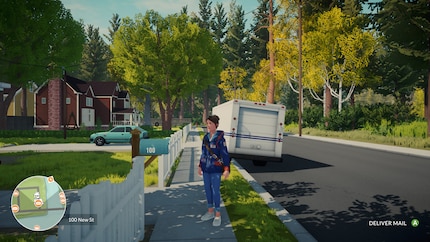
This conflict makes me wonder: if real work is so daunting that my father thinks my virtual postwoman must be mad – why am I happily doing it?
Can the impetus for this be found – as so often – in my childhood? Mind you, I never wanted to be a package carrier, and a quick survey among my work-sim-enjoyer friends revealed that none of them wanted to become a farmer, gardener or cleaner either. And yet, they regularly play Stardew Valley, Lawnmower Simulator and Powerwash Simulator. So, either my friends are all lying (could well be), or there’s more to why games about «normal» jobs are so popular.
For this article, I’m assuming option 2, since the success of these games is too great, too far-reaching, for a short catch-all explanation. According to Steam statistics, Euro Truck Simulator 2 has around 30,000 active players at any given time. The latest instalment in the Farming Simulator franchise from Zurich-based studio Giants Software sold more than two million copies in its first week alone.
As you can see, quite a lot of gamers will pay money to work fake jobs in their free time. A paradox, isn’t it?
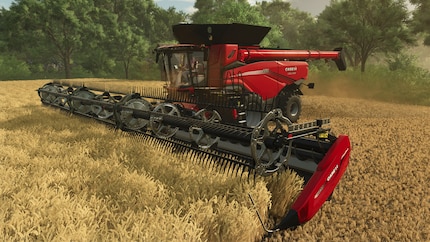
There are various psychological concepts behind the success of work simulator games. Perhaps the most important aspect here is what Hungarian psychologist Mihaly Csikszentmihalyi calls «flow». It’s that state of complete absorption when time flies by and you forget everything around you. The term has so far been used primarily in the arts, but apparently it also works for virtual window cleaning.
Studies by the Central European University show that simulation games produce flow states even more reliably than shooters, which require constant concentration. This is because the repetitive nature of simple tasks acts as a kind of digital meditation. The monotonous back and forth motion of a lawnmower switches puts the brain into a mode similar to mindfulness exercises and acts as a mood booster. This was confirmed by an Oxford University study.
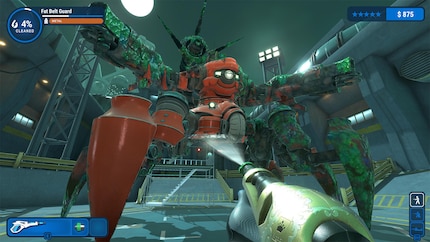
These games also offer crystal-clear targets and immediate feedback. Hosing away dirt = satisfying noises and a clean surface. In a real job, on the other hand, you’ll wait weeks for a half-hearted «well done» from your boss (except at Digitec, of course. Here, I receive a thank you for each article, or a fruit basket, or even a pair of penguin leather shoes). In the virtual world, every action is immediately visible, delivering satisfaction on each success.
Our brain loves this clarity, rewarding us with dopamine releases as if we’d climbed Mount Everest instead of just virtually scrubbing a parking lot.
Know that feeling when you should be going to bed, but that one open quest won’t let you rest? There’s a scientific term for this: the Zeigarnik effect. Our brain hates unfinished tasks, and reminds us of them insistently – work sims shamelessly exploit this process.
Stardew Valley creator Eric Barone has perfected this system. The day-night cycle interrupts players in the middle of their activities. I was just about to water the pumpkins, and it’s already getting dark. Psychologists describe this forced interruption as particularly motivating – a powerful desire to complete unfinished tasks.
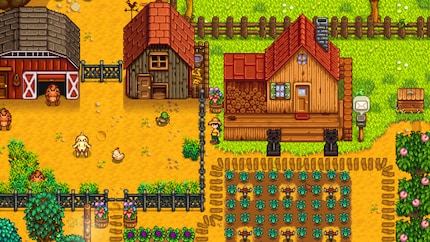
These games use nested reward loops. Harvest a single tomato (mini success), replant an entire field (medium success) and finally expand your farm with a chicken coop (massive success). This way, the brain glides through a constant stream of successes. That’s something the average office job offers about as often as the Swiss national football team delivers world championship victories.
Studies from East Carolina University show this: constant micro-achievements reduce stress markers by up to 54 per cent. This is more effective than most relaxation techniques – and more fun too. It also explains why people relax after a stressful day at work by driving a virtual bus.
Looking at it another way, people like to dance to their own beat. And maybe that’s one of the most important factors for the success of these games: they give back control that’s increasingly disappearing in real life. Self-determination theory states that people have three basic psychological needs: autonomy, competence and relatedness. Guess what modern jobs are particularly unsatisfying?
In a virtual driver’s cab in Eurotruck Simulator, however, I’m the boss. I decide when I get behind the wheel and drive my truck to its destination – if I’m up for it at all.
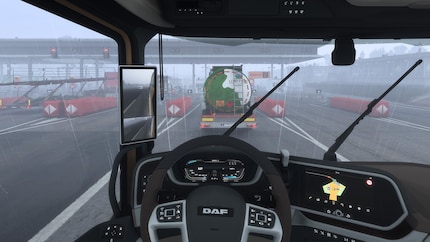
Studies show that people who experience little autonomy at work are particularly susceptible to escapist games. Virtual jobs more or less compensate for what real ones can’t offer. Instead of being just another cog in the machine in real life, I set the tone. The fact that no one’s really there to notice me is secondary.
Game developers have long understood what makes the human brain tick. They use sophisticated psychological mechanisms to turn boring activities into crack for the brain. The magic word: gamification.
Gamification refers to when game designers fool our Stone Age brains into thinking that cleaning windows is an epic quest. The formula is frighteningly simple: take a boring activity, add a points system or a progress bar and bang! I’m glued to the screen for four hours.
Powerwash Simulator shows how it’s done: every speck of dirt hosed away triggers a small dopamine rush, culminating in an acoustic jingle. Quickly hosing down the doghouse: ding! God, what a feeling. Our brain doesn’t differentiate between «real» and virtual victories, it just wants its neurological cookie. Developers know this and feed us the digital equivalent.
What looks like a waste of time has measurable therapeutic effects. Controlled studies prove it: these games activate the parasympathetic nervous system (responsible for relaxation), lower cortisol levels and increase serotonin. It’s the same effect as you’d get from established meditation practices – except that you’re just scrubbing the floor instead of paying attention to your breath in the lotus position.

The WHO even worked with gaming companies during the Covid pandemic to shed light on the mental health benefits of video games. Some therapists are now also integrating these games into their practice. They’re used as interactive relaxation techniques for patients who aren’t interested in traditional meditation.
Work simulator games don’t make boring tasks exciting – they provide the psychological rewards that make work satisfying while taking away all the stress.
These games satisfy fundamental human needs that modern jobs often ignore:
So, job simulator games aren’t an escape to the virtual office, but an escape from reality to idealised working conditions. They give us a sense of structure and productivity while eliminating uncertainty, office politics and pressure to perform.
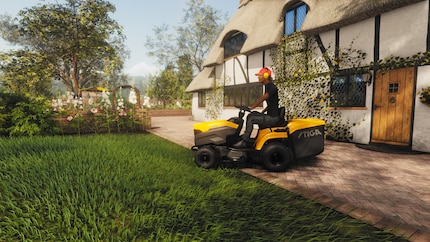
We don’t play these games because we secretly wanted to be a delivery driver (sorry dad) or because we long for the glamour of mowing a lawn. We play them because they give us back what modern work often lacks – the feeling that our efforts actually lead to something we can see.
That we decide for ourselves when and how we do something. That at the end of the day, we aren’t just ticking off another item on an endless to-do list, but that something tangible has actually been created. Even if it’s just a cleaner virtual parking lot.
In the early 90s, my older brother gave me his NES with The Legend of Zelda on it. It was the start of an obsession that continues to this day.
Interesting facts about products, behind-the-scenes looks at manufacturers and deep-dives on interesting people.
Show all
Background information
by Debora Pape
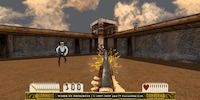
Background information
by Philipp Rüegg

Background information
by Philipp Rüegg